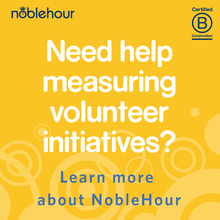This post was written by NobleHour Special Contributor Natasha Derezinski-Choo.
I’ve seen the grant process from both perspectives – as a project leader applying for grants, and currently as a member of a grant-giving council. I have found that grants are a great resource to help kick start a project, but receiving them can be a daunting and confusing process due to the paper work, applications, fine print, and competition. However, these obstacles can be overcome by thoroughly understanding the process.

How to I get a grant?
A grant is free money, but that doesn’t mean it’s given to just anyone. The process of receiving a grant usually involves writing a proposal describing your project. You’ll be asked to explain how you plan to carry out your project, how you plan to use the funds, and a host of other questions allowing you to showcase your project at its best. Grants may be awarded by a government department, corporation, non-profit foundation or trust, and these groups usually want to know the specifics of your project before they invest money in your organization. This can be a confusing and difficult process, so keep reading to find out how you can ensure your project is funded.
The Idea
Before you even begin the grant writing process, you have to have an idea. Chances are, you have many ideas about how you could solve problems in your community, and grants are a great way to help you accomplish this. When thinking of your project, make sure you are realistic; if you don’t believe it is achievable, neither will the people reading your grant proposal. Narrow down your project by thinking about some of these questions: What are the goals of your project? How are you going to carry it out? Who is going to work on this with you? What non-profits and organizations can you connect with to help you plan this? What resources will you need, and how much will these cost? Then, ask yourself again, is it achievable? Great things start with great ideas, but receiving a grant is also receiving responsibility.
Once you’ve completed this first step, it’s time to put your ambition into action by locating the resources you need to complete your community project.
Finding Grants
The first step to receiving a grant is finding one. This can be difficult because many grants have very specific eligibility requirements. An easy place to begin is by researching grants in the same niche as your community project. Grants typically support projects with specific goals or ones that involve specific groups of people. For example, one grant may only support projects lead by young people. Additionally, grants usually have a minimum and maximum amount of funding that can be requested of them. In order to ensure you meet all of these requirements, it is important to decide on a project, plan and objectives before searching for a grant.
Begin your search for opportunities by contacting non-profits, large corporations, local foundations, and government departments. Contact organizations that have the same goals as your project and find out what grants they may award or grants they may know about that could help your project. Once you find a grant that you believe fits your project, study the process for applying for and receiving the grant and begin writing you proposal.
Writing the Proposal
This is the most crucial part of the grant process. In fact, there are people who make it their profession to write grants to help non-profits receive funding. When writing your proposal, be as concise and specific as possible. It’s important that the people reading your proposal are interested in what you are writing about so you convince them to support your project. Remember, you will be competing against other organizations and projects for funding, so you want to be convincing in your proposal. 
The grant application will likely ask many questions, but here are some things to think about when marketing your project: What makes your project unique? Who is benefiting from the project and how? What inspired you to start this project? What need or issue are you addressing in your community?
Make sure you research the goals and objectives of the people you are requesting money from. Why are they offering this grant opportunity and what do they hope to achieve in the community by providing this funding? When writing, use language that will appeal to them by explaining how your project aligns with the purpose of the grant.
Finally, proofread, proofread, proofread. Make sure your proposal is free of errors and sounds as compelling as possible. Have someone review your proposal and ask for feedback from people who have been through the grant process before.
Receiving the grant
If you’re lucky enough to receive the grant, congratulations! Don’t waste any time on this opportunity. Begin putting your project into action and keep a record of your budget and spending if you have to report back the results.
Learning from Experience
If you don’t receive the grant, use this as a learning experience when applying to other grants in the future. If possible, ask for feedback about how to improve your proposal or improve your project. Don’t give up and continue researching other methods of fundraising your project.
How can you use NobleHour to make writing grants easier?
Use the NobleHour network to connect with volunteers, organizations, schools and non-profits to see how others are taking advantage of grant opportunities or to find people to help with your community project. Use NobleHour reports to measure the impact of your organization and the volunteer hours you contribute the community. This is useful, especially to demonstrate interest in your project.
image source:
http://www.flickr.com/photos/42931449@N07/6812484625,
http://www.flickr.com/photos/nics_events/2349631689





